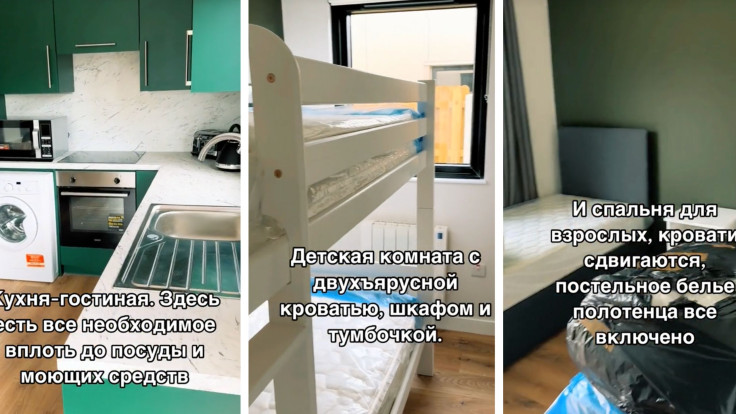Struggling Irish Families Slam £370K Newly-Built Homes For Ukranian Refugees Amidst Housing Crisis

Ireland's housing crisis continues to deepen, leaving countless Irish families struggling to afford homes. However, the Irish government's decision to spend hundreds of thousands on housing for Ukrainian refugees has sparked outrage among locals, who feel their own needs are being neglected
The Housing Crisis in Ireland
Since the 2008 economic crash, Ireland has grappled with a worsening housing shortage, leaving many citizens in precarious living situations. Currently, Ireland is facing a shortfall of between 212,500 and 256,000 homes. High inflation and soaring property prices have made homeownership unattainable for many, and renting is often equally unaffordable.
As Tortoise Media reports, the latest census data shows that 41% of individuals aged between 18 and 34 still live with their parents, amounting to 440,000 young adults unable to secure independent housing. This alarming statistic highlights the immense strain on the nation's housing market.
The £370K Refugee Housing Project
While Irish families struggle, the government has invested in housing projects specifically for Ukrainian refugees. One of the largest developments in Haywood, Clonmel, is a government-funded modular housing scheme with 82 units capable of housing 2,640 refugees. Initially estimated to cost £167,000 per unit, the price has soared to approximately £370,000 per home, as The Daily Mail reports.
The modular homes feature combined kitchen and living areas, children's bedrooms with bunk beds, and a primary bedroom. Each unit comes fully equipped with dishes, bedding, towels, and cleaning supplies—essentials that many struggling Irish families can scarcely afford.
By September, 572 of these modular homes had been constructed, though ongoing protests have halted further development. The steep costs and the allocation of resources to house refugees instead of addressing the needs of Irish citizens have been met with strong resistance.
Protests and Public Backlash

The government's prioritisation of housing for refugees, especially amid an acute national housing crisis, has triggered protests across the country. In June, tensions escalated in Clonmel, where violent protests erupted at the construction site of the modular homes. Security workers were injured, vehicles were damaged, and arrests were made for public order offences, assault, and criminal damage, The Irish Examiner detailed.
Frustration has also erupted on social media, with many Irish citizens voicing concerns about their financial burdens being directed towards helping refugees. One X user expressed frustration by stating, "I am middle-income, financing a modular home after 30 years with one employer. Taking 25% of my income to finance Ukraine is just wrong."
Many Irish families feel that while they are being forced to cope with rising living costs and housing shortages, the government is prioritising expensive homes for refugees, which exacerbates their frustrations.
Protests Erupt Across Ireland
The backlash against the refugee housing schemes has been brewing since late 2022, with protests occurring nationwide. In East Wall, Dublin, locals protested when an office building was unexpectedly converted into accommodation for 380 refugees. As reported by The Irish Times, residents expressed their frustration not at the refugees themselves but at the lack of communication from authorities.
Similar protests erupted in Roscrea, County Tipperary, in January when the town's only hotel was repurposed as refugee housing. Locals were particularly dismayed by the government's failure to consider the impact on local businesses and employment. "For us, it's about protecting our only hotel that was shut down overnight... There was no communication from the government. Our town, our businesses, and our people are affected," one resident told RTÉ News.
In Clonmel, the Clonmel Concerned Residents Group has demanded transparency from the government, requesting a list of buildings allocated to house refugees. They argue that Irish citizens are being left in the dark while their needs are pushed aside in favour of housing for newcomers.
© Copyright IBTimes 2025. All rights reserved.






















